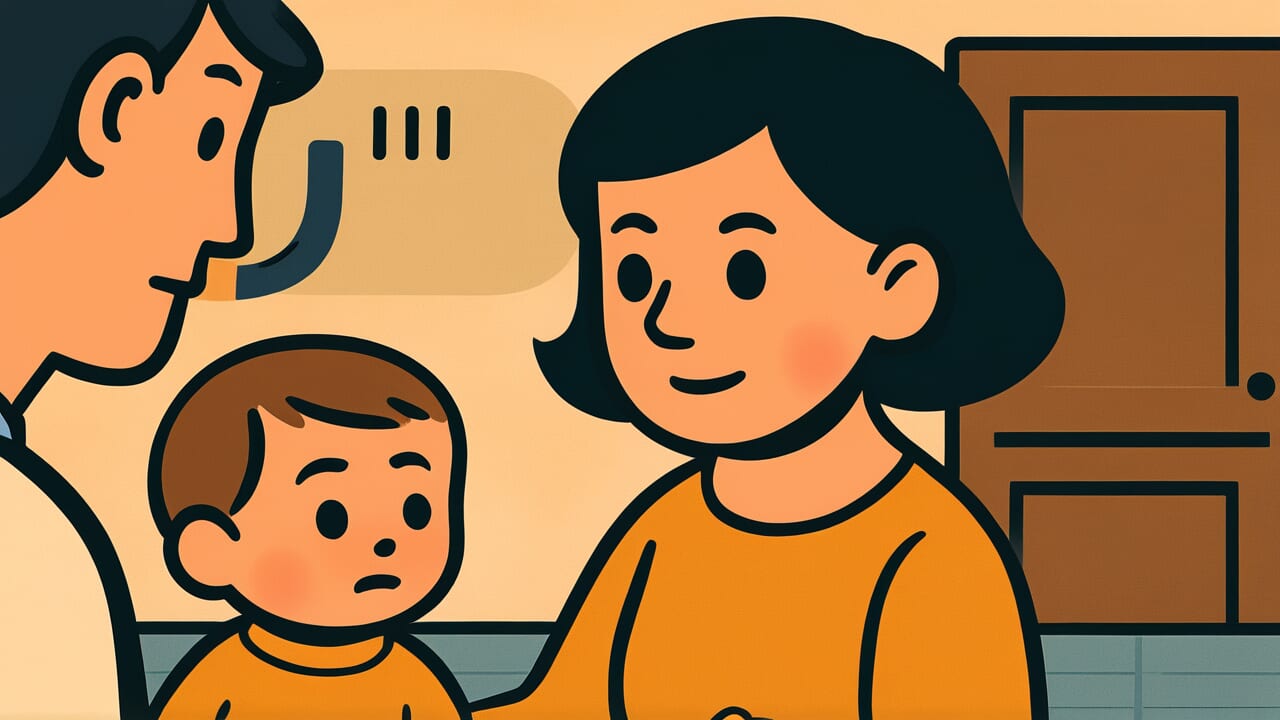How to Read “A parent’s eyes are biased eyes”
Oya no me wa hiikime
Meaning of “A parent’s eyes are biased eyes”
“A parent’s eyes are biased eyes” means that parents tend to think their children are better than they actually are. Because of deep love, parents cannot evaluate their children’s abilities, appearance, or personality objectively. They naturally overestimate them.
This proverb is used in two main situations. First, when parents praise their children too much, others gently remind them with this saying. Second, parents themselves use it humbly when they recognize their own biased judgment.
Even today, any parent raising children experiences this feeling. Your child’s drawing looks like genius work. Their small achievement at a sports day seems like amazing talent.
This proverb doesn’t reject parental love. Instead, it acknowledges this bias as proof of affection. At the same time, it gently teaches that staying calm and objective is also important.
Origin and Etymology
No clear written records explain the origin of this proverb. However, we can make interesting observations from how the words are structured.
The word “hiikime” combines “hiiki” with “me” (eyes). “Hiiki” originally comes from a legendary Chinese creature that could carry heavy loads. This led to the meaning “to support with effort.”
Later, it developed into “giving special support to someone.” “Hiikime” came to mean “eyes that look with special favor.”
This word connected with “parent’s eyes” through universal human observation. When parents look at their children, special emotions naturally enter their view. This happens because of deep love.
The saying likely emerged naturally from everyday conversations about child-rearing among common people during the Edo period. This theory is widely accepted.
Parental love clouding objective judgment happens everywhere across time and cultures. This proverb expresses this human nature warmly, sometimes with humor.
Usage Examples
- I know thinking my daughter is the cutest is because a parent’s eyes are biased eyes, but I still think so anyway
- I was moved reading my son’s essay, but I tried to stay calm knowing a parent’s eyes are biased eyes
Universal Wisdom
“A parent’s eyes are biased eyes” has been passed down through generations. This is because it perfectly captures the eternal dilemma between love and objectivity.
Humans cannot view their loved ones objectively. This is not a flaw. It is the very essence of love itself.
If parents could evaluate their children completely objectively, it might mean their love is weak. Seeing with biased eyes is proof of deep affection.
At the same time, this proverb contains deep wisdom. It teaches us to “recognize that your judgment is distorted.” When you know love clouds your judgment, you can avoid big mistakes.
You won’t overestimate your child and push unrealistic expectations. You won’t make unfair comparisons with other children.
This proverb shows human duality. We are emotional beings and rational beings at the same time. We have love while knowing that love distorts judgment.
This self-awareness is the key to human maturity. Our ancestors expressed in one phrase a difficult life challenge. They showed how to both love and see clearly at the same time.
When AI Hears This
Parents feeling their children are better than they actually are is a sophisticated strategy for passing on genes. According to evolutionary biologist Robert Trivers’ parental investment theory, child-rearing requires enormous energy.
For humans, this means about 20 years and massive resources. Here’s what’s interesting: parents who overestimate their children’s abilities had higher child survival rates than those who evaluate objectively.
This is because child-rearing is incredibly difficult work. Night crying, rebellious phases, financial burden. If parents calmly judged “this child might be below average,” their investment motivation would drop. As a result, the child’s survival and success probability would fall.
In other words, the cognitive bias of favoritism is a biological motivation system. It keeps parents going through difficult child-rearing until the end.
Research shows that higher parental expectations actually improve children’s real performance. This phenomenon is called self-fulfilling prophecy. It shows that overestimation has the power to change reality.
Biased eyes are not an illusion. They are an adaptive mechanism to draw out children’s maximum potential. The distortion caused by love, rather than objectivity, has been the driving force behind human prosperity.
Lessons for Today
This proverb teaches modern people the importance of recognizing our cognitive distortions. We all have biased eyes toward people and things we care about.
This isn’t limited to parent-child relationships. We tend to overestimate our own work, our own ideas, and our own choices.
The important thing is not to completely eliminate this bias. Love and passion are the driving forces that enrich life.
What we need is to recognize when we’re seeing with biased eyes. We should develop the habit of occasionally stepping back and reviewing things objectively.
In modern society, we tend to share only the good sides of ourselves and our families on social media. In such times, the wisdom of this proverb shines brightly.
Recognize your biased eyes while continuing to love. This balance is the secret to building mature relationships.
Cherish your affection for the people you care about. At the same time, don’t forget to keep a calm perspective. This balance creates relationships that truly benefit the other person.



Comments